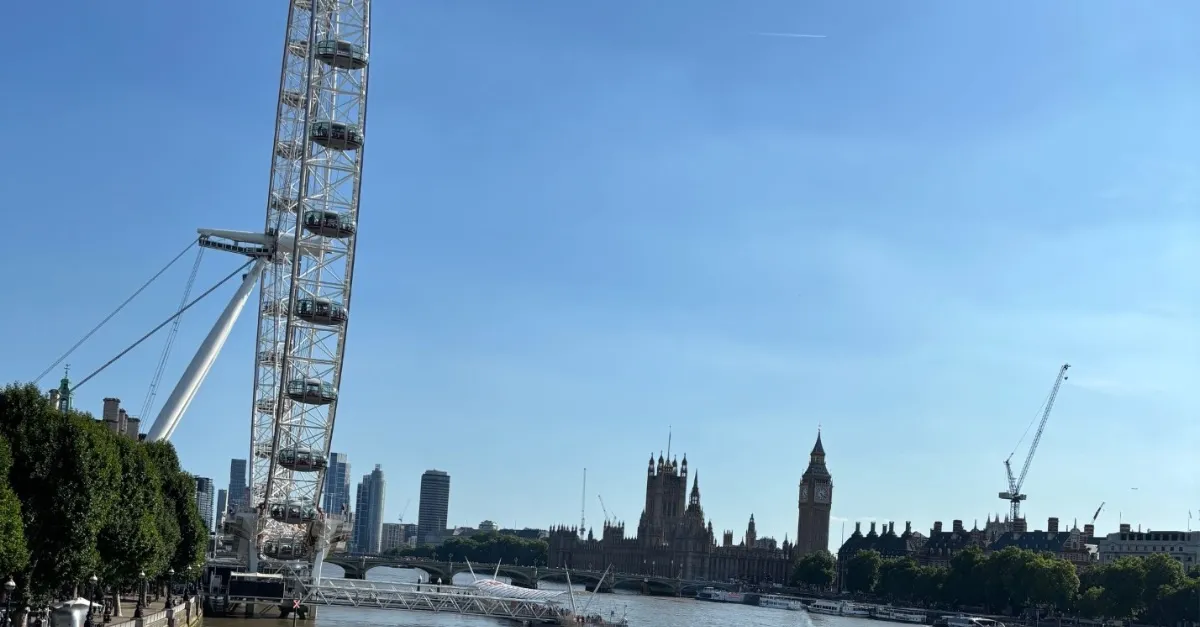The UK is starting to lose its competitive position internationally as a visitor destination, both globally and against some major western European rivals, according to long term forecasting.
Domestic overnight trips in England down 8% year on year also demonstrate the “ongoing operational challenges and cost of living impacts” faced by the industry.
The cautionary message came from VisitBritain/VisitEngland ahead of an annual review event for industry leaders in London today (Tuesday).
VisitBritain’s annual review comes as its just published inbound tourism forecast estimates £34.6 billion would be spent by international visitors in the UK this year, up 6% on 2024. A total of 44.3 million visits are forecast, a rise of 4% on last year.
Figures released by the tourism body show that overseas tourists spent an additional £562 million in the 2024-25 financial year, with 60% of this going to destinations outside London.
A ‘Starring Great Britain’ global promotional push, in collaboration with international film and TV studios using the power of screen tourism to inspire international visits, is estimated to have generated an extra £217 million in spending between its launch in January and June this year.
VisitBritain has also been working with partners across major inbound markets, including Australia, France, Germany and the US, generating £12 million of additional cash and marketing-in-kind activity in the last financial year.
Collaboration with the global travel trade had ensured British products were sold internationally, hosting major trade missions for markets showing growth including Australia, India and the US, connecting hundreds of British businesses with international buyers and generating almost £100 million in sales, according to the organisation.
Of product sold, 64% of itineraries and tours developed had featured destinations outside of London.
However, British Tourist Authority chairman Nick de Bois said that while it was good to see the overall estimated growth this year on 2024, longer term forecasts are showing that the UK is starting to lose its competitive position internationally as a visitor destination, both globally and against some major western European rivals.
“Tourism to the UK is already generating growth in value of 6% year-on-year. VisitBritain’s analysis shows that if tourism to the UK was growing at the same pace as current forecasts for Western Europe, the industry would be worth an additional £4.4 billion per year by 2030 to the economy,” he said.
“But tourism is extremely competitive, and visitors have a lot of choice. Like every export industry we need to be telling our story about why people should come to Britain not one day, but today.
“Tourism also frames how people around the world see Britain, building positive perceptions. Those who have visited are 16% more likely to invest in the UK’s businesses, products and services.”
He voiced disappointment at a lack of full-time funding commitment by government for Destination Development Partnerships (DDPs), with only two pilot schemes underway in the northeast of England and West Midlands under a Local Visitor Economy Partnership (LVEP) scheme designed to simply a regional structure for domestic tourism.
“As decision making is increasingly devolved, it has been fantastic to also see LVEPs engaging with mayoral authorities, ensuring tourism is recognised as a sector that delivers on regional economic growth and promotes pride-in-place,” de Bois said.
“However, despite the success of the DDP pilots and the hard work of LVEPs to gain accreditation, I am disappointed that there is still no long-term funding commitment from government.
“After all, the structures of tourism have responded and it would be timely now for government to do so too, to secure the future of destination management across England.”
